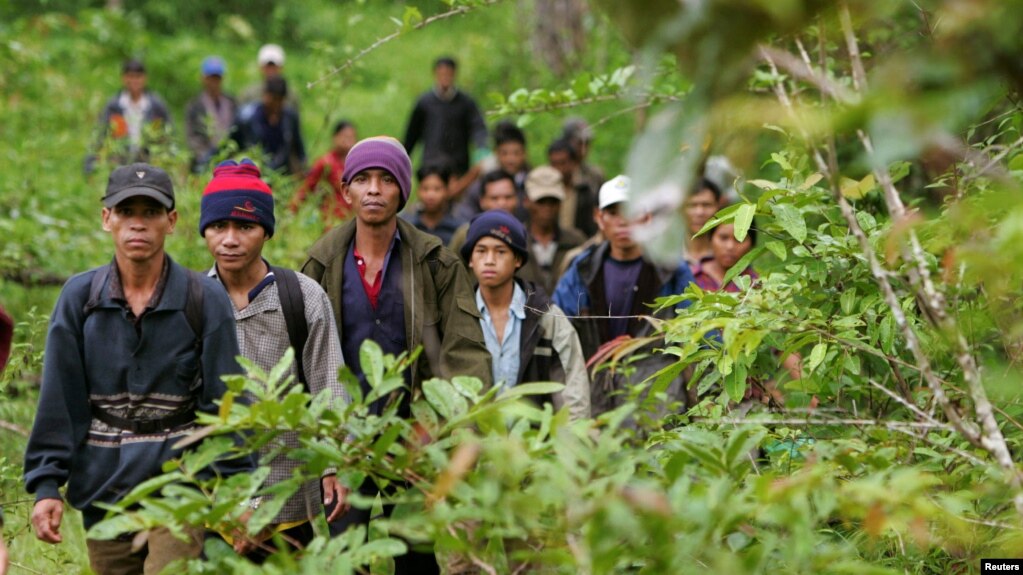14 December 2017
Men Kimseng
VOA Khmer

FILE PHOTO - Montagnard hill tribesmen walk towards the main road after emerging from dense forest 70 km (43 miles) northeast of Ban Lung, located in Cambodia's northeastern province of Ratanakiri July 22, 2004.
Some 15,000 Montagnards were resettled in the 1990s and 2000s in North Carolina.
WASHINGTON DC —
Experts on indigenous minorities and Vietnam War veterans will meet in North Carolina early next year to discuss challenges facing the Montagnard highland community in the United States and Southeast Asia.
The one-day conference will be held on February 3 and is being organized by the Fainting Robin Foundation (FRF) and the University of North Carolina Wilmington.
During the Vietnam War, the Montagnards – a term used to call a member of any various hill-dwelling people of Southeast Asia, especially those inhabiting the highlands of Vietnam – worked with the U.S. military.
Peter Maguire, founder of the FRF, said: “We owe them a debt of gratitude. They, particularly with the American Special Forces ... They saved a lot of American lives.”
Maguire added that the Montagnards were “betrayed” and “abandoned” by Washington after it fled South Vietnam in 1975.
Some 15,000 Montagnards were resettled in the 1990s and 2000s in North Carolina.
"The resettlement of our persecuted allies in North Carolina was a remarkable group effort that drew together people who rarely mix, much less get along,” he said. “Although this effort was very little, very late, it serves as a solemn reminder to Americans of the price paid by those who take us at our word.”
Steve Parker, executive director of FOCHUS (Friends Of the Central Highlands in the US), a North Carolina-based non-profit organization, said Montagnards living in the United States tended to have a lower socioeconomic status than other Asian-Americans.
“Generally, they are fairly industrious people,” said Parker. “They work hard… They don’t generally have a problem finding jobs.”
“There are a couple of small political movements that are still hoping that the United States will arm them and send them back to fight a war of liberation for central highlands,” he added. “I’ve tried to tell them that probably this is not going to happen and they would be better off devoting their resources to some other causes. They are very stubborn and they believe long enough that they can make this happen.”

No comments:
Post a Comment